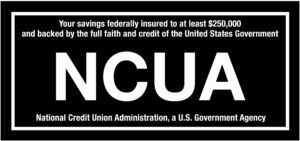When choosing what type of financial institution to use for your personal or commercial finances, it is important to weigh the pros and cons for both establishments. Being able to decipher which institution best fits your needs is critical for optimal financial success. Doing your research on banks and credit unions is a key component in building a better financial relationship with a financial institution when it is time to make the choice.
Banks: What you need to know
Banks have been a part of our lives for hundreds of years, yet not everyone knows all of the important details before joining. It is important to know that all banks are backed by the Federal Deposit Insurance Corporation (FDIC) with a coverage limit of $250,000 per member.
Public vs private
One key difference between banks and credit unions is that banks are privately owned or are publicly traded. For instance, Bank of America is publicly owned, so anyone is able to purchase stocks in the company. The founder(s) or management are not the sole owners of the financial institution. Anyone who owns stock in the company is an owner. Citibank, however, is a privately owned bank, so typically management or the founder(s) of the company are the ones who own the business.
For-profit company
With banks, they are all considered a for-profit company, which can oftentimes explain the specific services they can offer compared to what credit unions can provide. Since banks are in business to make a profit, their rates and fees can be higher than credit unions.
More accessible nationwide
Banks that are large conglomerates, such as TD Bank, oftentimes are more accessible, being that TD Bank has over 1,200 locations throughout the entire country. Having the convenience for members is often what makes members choose banks over credit unions.
Commercial banking
Although this is not true for all credit unions, all banks offer commercial loans for their members. If a member decides to open a small business of their own, if the credit union in their area does not provide those types of loans, it is likely they will have to choose a larger institution such as a bank to financially back them and their company.
Credit Unions: What you need to know
Credit unions are different from banks regarding what they offer for their members. Furthermore, it is important to know that credit unions are backed by the National Credit Union Administration (NCUA) with a $250,000 coverage limit per member.
ATM fees
What is great about credit unions is that there are no fees attached when you use the ATM at your credit union. Additionally, a member can have up to four separate withdrawals from an ATM that is within the shared branching network for free. After the fourth time, the member will be charged one dollar for the withdrawal. Keep in mind: certain credit unions may have their own set amount for fees. Make sure to reach out to your credit union to learn more about fees regarding shared branching ATM fees. With banks, if you withdraw money from another financial institution, you will be charged a fee for using their service.
Shared branching
Shared branching is a feature that is appealing to many members as they can be anywhere in the country and likely be able to find a credit union near them. However, it is important to note that not every credit union participates in shared branching; make sure to check with your credit union to see if they participate!
Member owned
What makes credit unions unique is that they are member owned, which means that their relationships with their members are a top priority. Without the members, the credit union wouldn’t be as profitable or successful. Additionally, with being a member-owned financial institution, the credit union always offers financial education for its members. With banks, members are often just a number as banks can have millions of members; with credit unions, the membership is relatively small, with some credit unions having under 10,000 members.
Non-profit
Although you would think that a credit union would be a for-profit company since they deal with member’s money on a daily basis, credit unions are considered a non-profit company. Credit unions work for their members and their financial satisfaction; banks often are just working for a bigger paycheck.
Who can become a member?
There are rules regarding becoming a member of a credit union. In order to be a member of a credit union, you must live, work, or worship in the specific areas that the credit union allows. If you do not identify with any of the locations that the credit union supports, it is likely that there is another credit union that will be able to serve you.
Knowing the difference between a bank and a credit union is important if you are curious about which institution will make the most sense for you and your finances. With this article, hopefully you were able to gain a better understanding of what the major differences are between both financial institutions.

